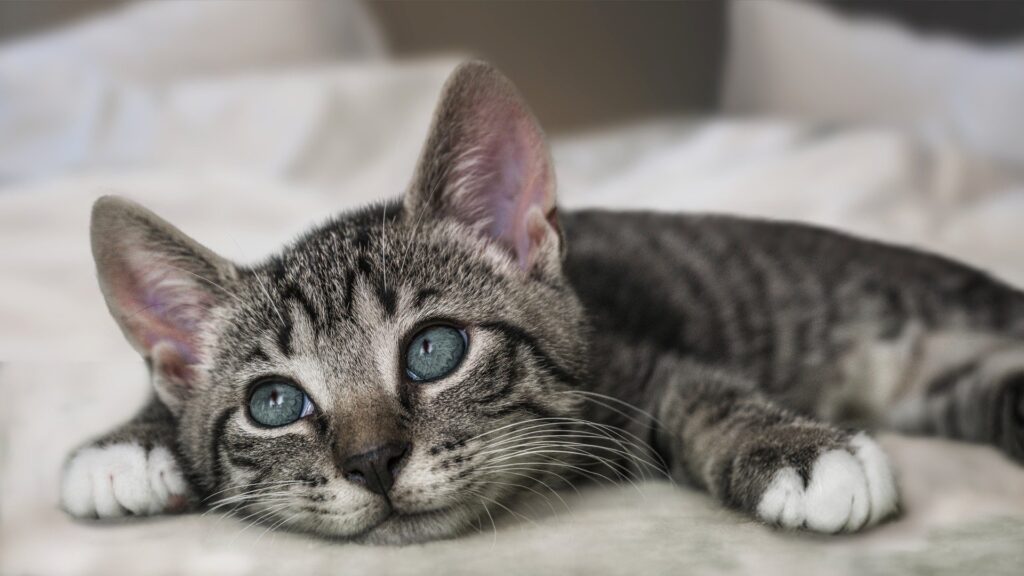
Cats can occasionally experience coughing. In cats, retching or gagging which includes “coughing up hairballs” is sometimes mistaken for a respiratory cough.
A cough is an abrupt, loud outflow of air from the lungs caused by an expiratory exertion. It is often brought on by irritation or inflammation of the mucous membrane of the bronchi, trachea, or bronchioles, which is an attempt to remove mucus or other accumulated inflammatory secretions. Prolonged coughing can cause nausea and possibly emesis, including the discharge of bile from the stomach.
What causes cats to cough?
Cats can cough for various reasons. some are mild and temporary, while others may be more severe and require veterinary attention. Here are some common causes of cat coughing.
Hairballs
Cats often cough up hairballs a couple of times a week and this is a normal part of their grooming process. if your cat is coughing frequently, it could be a sign of an underlying condition.
Ensuring the hydration of your cat or by using fish oil can reduce the chance of hairball formation. You can also use hairball gel.
Allergies
Cats can develop allergies when they are exposed to many substances, such as pollen, dust, or certain foods, which can lead to coughing. Always keep an eye on your cat, and how your cat reacts to different foods or other substances.
Prevent your cat from eating allergic foods, because cat coughing due to allergic foods can be severe and need medical attention in many cases.
Respiratory infections
Bacterial infections can cause inflammation in the respiratory tract, leading to cat coughing. upper respiratory infection also includes the symptoms of coughing, wheezing, and sneezing. Kittens and senior cats are more likely to get upper respiratory infections due to weak immune systems.
Asthma
Feline asthma is a common condition that causes inflammation and narrowing of the airways, leading to coughing, and difficulty breathing. Cat coughing in cats, between the age of two to six years are more likely due to asthma.
All breeds of cats are susceptible to asthma, but Siamese cats are at higher risk of developing asthma
Heartworms
Heartworms are parasites transmitted by mosquitoes that can affect the lungs, causing coughing in cats. Heartworm disease in cats also includes the symptoms of vomiting, lack of appetite, or weight loss other than coughing.
Cancer
Certain types of cancer, such as lung cancer, can cause coughing in cats. Other symptoms of cancer may include fever, loss of appetite, and shallow breathing.
If your cat is coughing persistently or coughing with blood, it is essential to consult with a veterinarian for proper diagnosis and treatment.
When veterinary care is necessary for a coughing cat?
Veterinary care is necessary for a coughing cat when the coughing is persistent, severe, or accompanied by other symptoms such as difficulty breathing, or loss of appetite. These symptoms can indicate a variety of conditions, including respiratory infections, asthma, heart disease, or even cancer.
How cat cough diagnosis will be done?
A complete clinical examination is important to assess the cat’s overall health and identify any visible signs of respiratory distress.
Furthermore, chest radiographs (X-rays) play a crucial role in diagnosing the underlying causes of coughing in cats. X-rays can reveal lung changes that provide important clues to the cause of the cough.
Routine bloodwork can provide additional information about the underlying cause of the cough in some cases. Blood tests can help identify infections, allergies, or other systemic issues contributing to the cough.
How the cough will be treated?
For respiratory infections caused by viruses, treatment typically involves managing the symptoms with decongestants, cough suppressants, eye medications, nasal sprays, and antibiotics to prevent or treat secondary bacterial infections. For bacterial infections, antibiotics that are effective against those diseases are used, along with any other symptoms similar to viral infections.
Fungal infections are treated for several weeks to months with antifungal medications, and some cases may require antibiotics as well.
Treatment for feline asthma involves removing potential triggers from the cat’s environment and giving inhaled or systemic medications to reduce inflammation and swelling in the airways.
It’s important to note that the treatment options for cat cough can vary widely depending on the underlying cause, and some causes may require more aggressive or long-term treatment. If your cat is coughing, it’s important to consult with a veterinarian to determine the underlying cause and develop an appropriate treatment plan.
